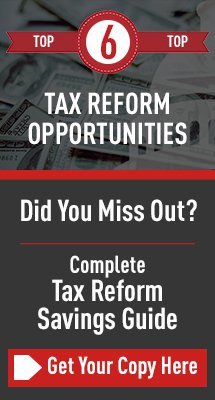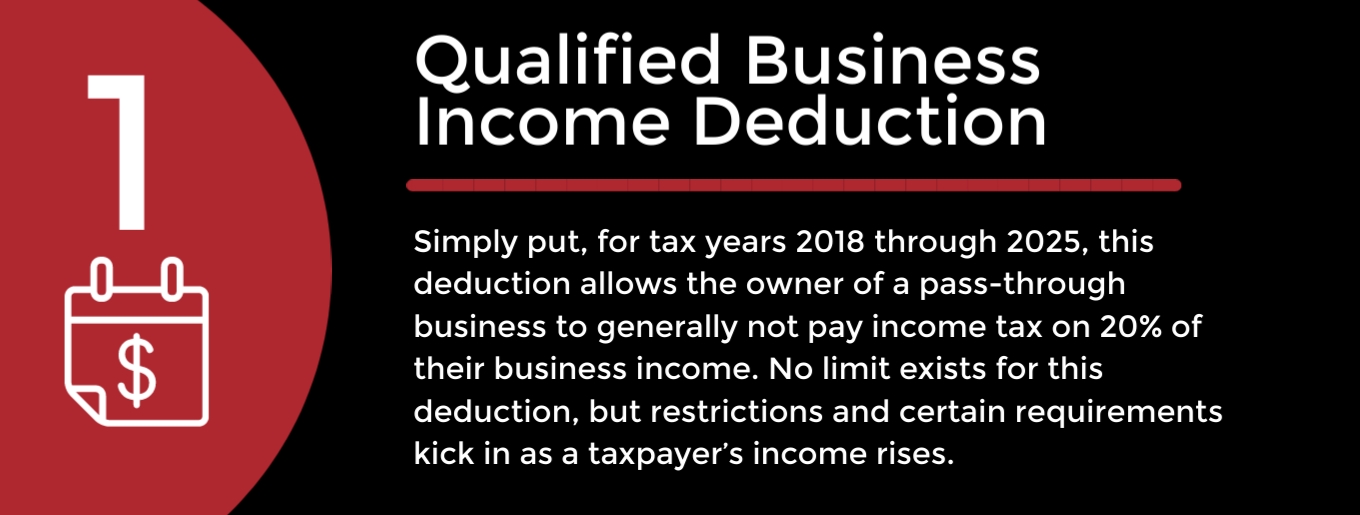 Did you feel like your taxes were minimized last year? If not, it’s possible you may have missed out on some opportunities.
Did you feel like your taxes were minimized last year? If not, it’s possible you may have missed out on some opportunities.
Federal tax reform through the Tax Cuts and Jobs Act provided some of the best tax benefits to businesses in more than 50 years. The corporate tax rate was slashed from the graduated maximum of 35% to a flat 21%.
There also was big news for smaller businesses – the new Qualified Business Income Deduction offers possibly the greatest tax benefit to pass-through businesses in more than 60 years. QBI allows qualified small business owners to simply not pay income taxes on 20% of their qualified income in tax years 2018 through 2025.
While every tax situation is different and savings are not guaranteed, most of the businesses we work with had a good 2018 tax year.
 Did you? If not, download our free Top 6 Tax Reform Opportunities for Business guide. Learn about the latest tax strategies for businesses to see if you could benefit.
Did you? If not, download our free Top 6 Tax Reform Opportunities for Business guide. Learn about the latest tax strategies for businesses to see if you could benefit.
Download the guide now, or check out one of the six strategies below:
Qualified Business Income Deduction
The new Qualified Business Income Deduction is probably the biggest tax break for small business owners, especially those in the highest tax brackets.
So what is QBI, also known as Section 199A? Simply put, for tax years 2018 through 2025, this code section allows the owner of a pass-through business to generally not pay income tax on 20% of their business income. No limit exists for this deduction, but restrictions and certain requirements kick in as a taxpayer’s income rises.
READ MORE: The QBI Deduction: The Newest Rules for Business Owners

Here are three concepts to know:
- This provision benefits owners of sole proprietorships and pass-through entities. Because of this great benefit, converting to a C corporation is generally not recommended at this time. We’ll provide more details on this tax strategy consideration later on.
- It shelters qualified business income, which is income usually taxed at ordinary income tax rates. Generally speaking, the deduction is 20% of your qualified business income. The higher the business income, the larger the deduction. This impact is tremendous. Think about this – a taxpayer in the highest income tax bracket with $1 million of business income could reduce their tax bill by $100,000 with this new tax deduction. Also keep in mind, as you set your salary for the year, if you’re taking a higher salary to reduce your business income, you’re potentially losing a deduction.
- The bigger the benefit, the more complicated the rules. There are phase-ins, limitations, thresholds, etc. This is complicated, so you need to talk to your CPA and understand how this law applies to your situation.
Want to learn more? Click here to download our complete Top 6 Tax Reform Opportunities for Businesses guide or contact us here.





